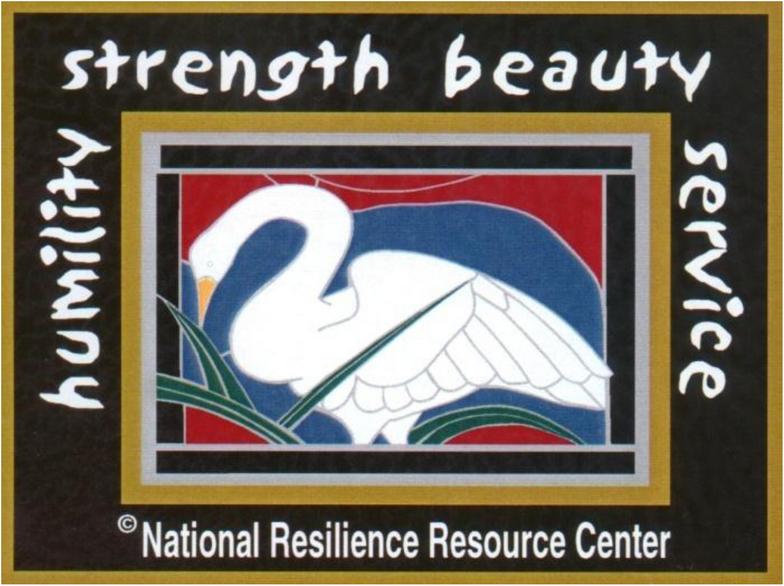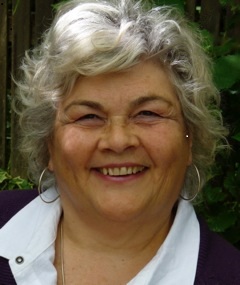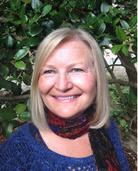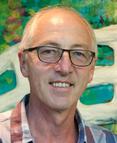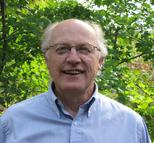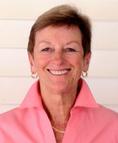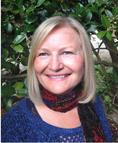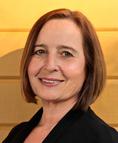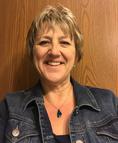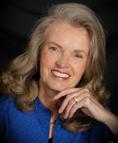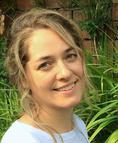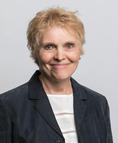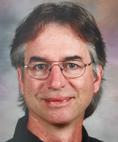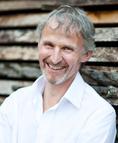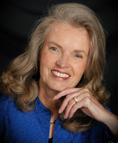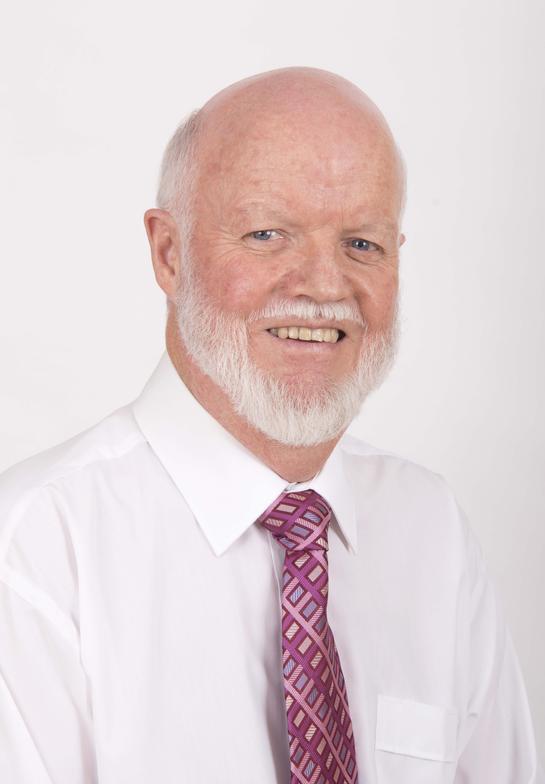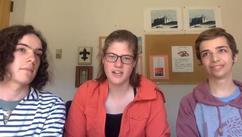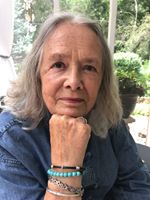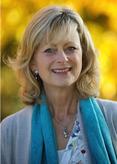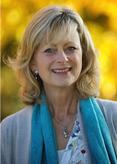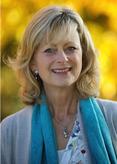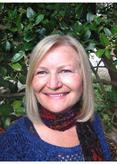National Resilience Resource Center
1. "The Essential Curriculum" - Barbara I. Aust
What is this Essential Curriculum? Illusive, formless and invisible, the Essential Curriculum is the “feeling barometer” we can sense inside the schoolhouse. It helps people uncover their potential, passion, compassion and wisdom and reveals the foundation for lifelong learning.
About Barbara I. Aust, B.Ed., M.Ed.
Barb Aust has been actively involved in the education field for over four decades. She has successfully worked in Canadian early childhood education, the public school system, alternative schools, First Nations Band schools and at Vancouver Island University.
"Educators Living in the Joy of Gratitude"
Video Descriptions and Speaker Bios
She was a consultant with her own company, Essential Curriculum™, and worked with schools internationally as an on-line mentor for teachers in various locales. Barb has published a book on creating positive and optimistic school cultures, The Essential Curriculum. Click here.
Barb and her family moved to Salt Spring in the mid-seventies as an early student of Sydney Banks. His teachings have created the foundation of her life for nearly forty years both in and out of the schoolhouse.
Barb is an active volunteer in the community and serves on a number of different boards. She is working with others to ensure the best possible support for people as they age. Barb loves spending time being captured by the muse as she creates collages out of torn paper. The kaleidoscope of colors and shapes found in different papers intrigue and feed her soul.
Contact: NRRC
Barbara’s Publications
Aust, B. (2016). Field notes: Capturing the moment with a story. ASCD Express.
Retrieved from www.ascd.org/ascd-express/vol12/1207-aust.aspx
Aust, B., & Vine, W. (2003, October). The power of voice in schools. Classroom Leadership, ASCD, 7, 5, 8.
Aust, B. (2004). See Them in Their Place of Knowing. Salt Spring Island, BC, Canada: Author. (Development of this unpublished booklet requested by Syd Banks for specific educator use in Scotland and England led to the 2013 book below.)
Aust, B. (2013). The Essential Curriculum™: 21 Ideas for Developing a Positive and Optimistic Culture. Author.
2. "A Teacher's View of Seeing Beyond Behavior to Student Success" -
Christa Campsall
Christa Campsall first heard the term “seeing beyond behavior” from Sydney Banks. For a teacher, this is of importance as we are so concerned with behavior in schools. When a teacher sees with empathy beyond behavior to the essence of the child or youth, there is an opportunity for that student to clear his or her own mind and for wisdom to unfold. We can draw out of them what they already know; this generates understanding and leads to student success. Educators live in the joy of gratitude when a student meets success!
About Christa Campsall, B.Ed., Dipl. Sp. Ed., M. A.
For more than 25 years Christa was in service at the primary, intermediate and secondary levels in the Canadian K-12 education system as: Classroom Teacher, Learning Services Teacher in Special Education and Teacher-Leader of School-based Teams. Throughout this varied experience, she benefited from an understanding she encountered in 1975 when she was 21 years old and a university “pre-service” teacher. At that time, Christa was introduced, by Sydney Banks, to what today is called the Three Principles of Universal Mind, Consciousness, and Thought. Even a first glimmer of this knowledge had the power to transform her life by impacting her teaching and learning capabilities, as well as deepening the level of happiness and peace of mind in her personal life. Most recently she has produced a comprehensive Pre-K – 12 school curriculum assisted by Kathy Marshall Emerson and Jane Tucker. In 2017 she was called back into school service and in 2018 piloted her comprehensive principles curriculum, My Guide Inside, in Canada, the United States and other locations.
Especially see video 17. Experiences with My Guide Inside at Gulf Islands Secondary School for powerful official secondary student focus group responses to their My Guide Inside III pilot class.
Based on her work in schools, Christa knows that sharing these three simple principles invigorates an individual’s innate health, resilience, wellbeing and natural mindfulness. She observes that this knowledge impacts students, teachers, and parents alike. Christa had the extraordinary privilege of Syd Banks mentoring her during most of her teaching career. In 2008, he granted Christa a Certificate of Competency to teach the Three Principles.
Contact: 3 Principles Ed. Talks
Christa's Publications and Thesis
Campsall, C. with Marshall Emerson, K. (2018). My Guide Inside, Learner Book I. Author.
Campsall, C. with Marshall Emerson, K. (2018). My Guide Inside, Teacher’s Manual, Book I. Author.
Campsall, C., Tucker, J. (2016). My Guide Inside, Learner Book II. Author.
Campsall, C. with Marshall Emerson, K. (2017). My Guide Inside, Teacher’s Manual, Book II. Author.
Campsall, C. with Marshall Emerson, K. (2017). My Guide Inside, Learner Book III. Author.
Campsall, C. with Marshall Emerson, K. (2017). My Guide Inside, Teacher’s Manual, Book III. Author.
Campsall, C., Tucker, J. (2018). Whooo … has a Guide Inside? Author.
Campsall, C. (1995, 1999). Inner Resources Guide: Activity Book. Salt Spring Island, BC, Canada: Proactive Training Inc.
Timm, J., Campsall, C. (1994, Fifth Edition). The Self-Esteem is for Everyone Handbook. Tampa, FL: Learning Advantages.
Master’s Thesis: Campsall, C. (2005). Increasing student sense of feeling safe: The role of thought and common sense in developing social responsibility. Unpublished master’s thesis. Royal Roads University, Victoria, British Columbia, Canada.
3. "Impact of the Principles in Schools and the Wider Community" -
Peter Anderson
Peter Anderson shares his experience working in the school system and its wider community. He describes the impact this has had. Peter discusses individual breakthroughs for students and others as well as the effect on bigger groups.
About Peter Anderson, Cert. Ed, A. Dip Ed, Cert. Counselling, NLP Dip
Peter Anderson has worked in primary schools (students ages 4 to 11 years) for over 40 years. He has been headteacher (principal) in several schools for more than 31 years. Throughout this time Peter is passionate about providing the best environment and circumstances in which children may learn and flourish.
More than ten years ago Peter was introduced to the Three Principles through his daughter Jenny Anderson (co-founder with Rudi Kennard, of the Three Principles Movies website). Despite initially being reluctant to becoming involved, Peter did become more and more curious about the transformation of his daughter Jenny. “She went from painfully shy to finding her own voice and becoming comfortable in her own skin.”
Peter then had the opportunity to hear Sydney Banks and train with Mara Gleason, Aaron Turner, George and Linda Pransky, Dicken Bettinger, Keith Blevens, Jack Pransky and Elsie Spittle.
He immediately felt the transformation in his own life and in those of family members around him. He took the understanding into his work. He has witnessed some truly heart-warming changes in pupils, staff members and parents.
Peter took semi-retirement in 2013 in order to further his own 3P practice, Anderson Wellbeing. However, he immediately became re-employed to act as interim headteacher for schools in need. He says, “This is an ideal setting for sharing the Principles!” Peter wants to continue to disseminate the principles as widely as possible.
Contact: www.AndersonWellbeing.com
4. "Students don't need to be "fixed"... they're already "fixed"!" -
Gary Johnson
As a School Social Worker, Gary Johnson was awestruck the first time he heard a regional cooperative education service Head Start Director summarize resilience research and Health Realization. Gary describes what became an entirely new perspective on School Social Work. “My focus is on seeing the student’s health that is already present and seeing the light return to a student’s eyes.” Gary discusses the work of a school social worker from the perspective of being a mental health educator within a school system. He
describes individual work with students in general and special education. He shares experiences using a systems approach focusing on the health of the adults in the educational system designed to bring out the best in the children, their parents, and the broader community. The health of the helper is explored with personal stories of understanding and living from the principles.
About Gary S. Johnson, MSW, LAPSW
Gary’s career as a school social worker lasted for 34 years, half without the benefit of an understanding of the Three Principles. “Understanding and application of the principles changed how I did my work and brought great relief and gratitude to my life. I was exposed to the principles in 1996. I applied the understanding in my work as the only school social worker in a K-12 district with 3500 students in rural Wisconsin until my retirement in 2014. I continue to apply the understanding in my part time work as a mental health educator in a community based mental health counseling center.” He also conducts three principles trainings with the National Resilience Resource Center. Gary is licensed as a special education teacher (Learning Disabilities and Emotional Behavioral Disabilities) and as an Advanced Placement Social Worker. Previously he worked in hospital mental health, Head Start, Title I prison education and juvenile group home supervision.
Contact: NRRC
5. "Creating Optimal Learning Environments with Love: Youth at
Promise - Rita Shuford and Susan Hill
These educators, both musicians and psychologists, are singing the same song even though they have never met. The tune? “Create a school environment with love so all students are at promise as optimally as possible.” There is no school or student unable to discover a beautiful melody inside. Rita and Susan are on the same page and have more than 50 years integrating the principles into school environments and school-based mental health services. Catch a glimpse of what happens to the students, schools and families they touch.
About Rita Shuford, B.A. in Music Education, M.A. and Ph.D. in Counseling Psychology, Licensed Psychologist
Rita’s first job was as a junior high music teacher; “Lots of fond memories!” She intuitively knew there had to be a simple, direct way to draw out health, well-being, confidence and common sense. In her search, she had the good fortune to hear and meet Sydney Banks in 1977. Dr. Shuford says his simple, yet profound, truth of innate health helped her see the power of love and unconditional respect to create a school environment that naturally drew out the innate potential of students and adults. She has been a counselor and consultant/trainer for more than 35 years. She also coordinated a federally funded juvenile delinquency prevention program for five years in Eugene, Oregon.
In 1986 while at the University of Oregon, she completed the first doctoral dissertation on the principles. Rita is a licensed psychologist and Certified Practitioner of the Three Principles, worked in schools, hospitals, community and private mental health clinics and other settings. Rita was Director of Clinical Services in three clinics. Dr. Shuford is currently President and founding partner of Three Principles Hawaii providing coaching, counseling, supervision, training and education locally and internationally to students, colleagues, individuals, business and community organizations. She founded the 3 Principles Cadre, a community outreach and professional supervision and training group.
One of her passions is singing with the acclaimed Windward Choral Society. She has been Board of Directors President.
Contact: Three Principles Hawaii
Rita's Publications
Kelley, T., Mills, R., & Shuford, R. (2005). A principle-based psychology of school violence prevention. Journal of School Violence, 4(2), 47-73.
Shuford, R. (1986). An exploratory study to determine the effectiveness of a new cognitive treatment approach when used in a clinical setting. Unpublished doctoral dissertation. University of Oregon, Eugene.
About Susan Hill, B.S.in Music, M.S. Licensed Psychologist
Susan Hill has been Clinical Supervisor for a Catholic Charities Child and Adolescent Intensive Outpatient Day (IOP) Treatment Program for more than 20 years. “Intrigued by the principles when first introduced about 15 years ago, I have personally integrated and taught the understanding to groups of children and adolescents, their families and the therapists I supervise.” Susan recounts positive impact over a span of years.
This Catholic Charities IOP serves about 30 “at promise” clients from first grade through high school. In the three hours daily of mental health groups the staff members focus on the principles by example and education. These special education students arrive with some of the most challenging conditions, circumstances and diagnoses, yet exhibit amazing resilience.
Susan voluntarily taught the principles in the Stearns County jail for several years. She also works from the principles in her private psychological practice and enjoys seeing lives changed. However she adds, “My own family has benefited the most from these amazing insights about how we function and can live life in health. There is never a shortage of opportunities to use humor and realize health.” Colleagues look forward to her exuberant and amazing stories! She is associated with the National Resilience Resource Center as a local volunteer principles training facilitator.
So music can continue to be a part of her life, Susan regularly accompanies three different community choirs. She and her family love music and performed as the Hill Family Singers for many years when the children were small.
Contact: NRRC
6. "Married to the Principles" - Dave and Kari Decker
This presentation recounts a couple’s journey through teaching and parenting from the principles! Their zest, humor and seasoned teaching abilities come shining through. Discover what happens when two teachers learn the principles, fall in love, and life unfolds.
About Dave Decker, B.S. Physical Education and Coaching, M.Ed.
About Kari Decker, B.S. Regular and Special Education, M.A. Reading
David and Kari Decker are educators. For many years they worked in the same school. They have been married since 2002. They were introduced to the principles in the late 90’s through trainings offered in their school district. The principles have always been a common thread running through their life as a couple. Starting with their first date, they found a comfortable conversation and common interest in their understanding of resilience and the principles. As life events happened and challenges came with their marriage as well as the births of their two children, Kari and Dave found themselves relying on their understanding of the principles. They sought out ways to deepen their understanding. This naturally led them to incorporate the principles behind resilience into their teaching and parenting. They eventually began facilitating short refresher trainings for community members and school staff members. Their understanding has played a pivotal role in helping them navigate their lives personally and professionally.
David and Kari have been integrating their understanding of the Three Principles into their teaching and coaching since 2000. David has taught physical education in a middle school and coached middle school and college athletics. He also worked in elementary and high schools. Kari teaches middle school social studies, and was a special education and regular education teacher at the elementary and middle school levels. Both Kari and David participated in Advanced Leader training, and facilitated staff refresher trainings. Kari is an advisor for a middle and high school principle-based resilience leadership student group. She introduces the principles to her 6th grade students.
David and Kari have a reputation for utilizing the principles and working well with students who don’t always fit the typical student mold. Their understanding has enabled them to recognize the health in all of their students, and provide an atmosphere conducive to success. David and Kari have also been an integral part of a group of educators who have infused the principles into middle school curriculum. They feel blessed to have been given the gift of the principles to help guide them through their personal and professional journey.
Contact: NRRC
7. "Empowering School Staff Members and Students to Access
Their Inner Health" - Brady Hughs and Joel Selensky
These Student Services veterans with more than 50 years in education, are a solid presentation team. They are unique and different personalities with a shared mission and a deep dedication to integrating the principles in education. They discuss strategies, methods and interventions utilized in their St. Cloud, Minnesota, school settings to expose students and staff members to the innate capacity for mental health. Joel says, “We talk about what we have been doing to share the
principles with others and share stories. We look forward to hearing how webinar participants have been teaching the principles of thought, mind and consciousness.” Applications and stories of student success are the focus of this session. Both presenters have extensive experience working with students most often referred to them for school social work or psychological services inside the school system.
About Brady Hughs, B.A. in Criminal Justice, M.S.W. in Clinical Social Work, M.H.D. in Human Development, and Major USA, Retired (National Guard)
Brady Hughs has spent his life in service to others; first in the United States military as an Army Ranger and then as a Sargent in the Army’s Special Forces. Brady received his Commission from the University of Kansas while earning his bachelor’s degree in Criminal Justice. He deployed overseas in Southeast Asia as part of the War on Terror.
In 1992 Brady worked as a counselor at Boy’s Town in Omaha, Nebraska, while completing his Master’s Degree in Human Development. In 1994 he was employed by Catholic Charities in St. Cloud MN as a Residential Treatment Therapist. From there he was recruited to work in the St. Cloud public school district as a School Social Worker. He also earned a second Master’s Degree in Clinical Social Work.
He was first exposed to the principles in 1997 by participating in National Resilience Resource Center (NRRC) district trainings and now volunteers as an in-house NRRC trainer in his school system. Brady discovered not only the innate capacity for mental wellbeing in him, but has taught many students and adults the principles. He has witnessed profound changes in youth who suffer from their mental state of mind. Exposing students to their own resilience as innate mental health has motivated Brady to continue helping youth in his current capacity as a School Social Worker in the district’s residential treatment facility based at Catholic Charities. Brady has a reputation for reaching young people others have long ago given up on.
Brady always finds creative ways to serve people in need. Examples range from producing stunning nearly free high school graduation portraits for students with limited resources, to garnering permission to teach principles classes for fellow soldiers while deployed. Brady takes every opportunity to pass on the principles. While he was a patient in a military hospital every staff member was a potential student and he found ways to get classrooms and teach small groups the principles during his own hospital stay! Finally when not at school Brady is running his successful self-created photography company and spending time with his family.
Contact: NRRC
About Joel Selensky, B.A. in Psychology, M.S. in School Psychology, and Psy.S. (specialist degree) in School Psychology, and Nationally Certified School Psychologist (NCSP)
Joel was a school psychologist at elementary and secondary levels for 30 years. Since learning the principles from NRRC’s Kathy Marshall Emerson in 2005, he has shared the understanding with students and staff members. Joel regards the principles as one of the most important and helpful things he has ever learned to share with others. He reports staff members and students also make similar comments.
Joel is one of the special people who encountered the principles well into his educational career. With keen interest and unabashed openness he explored the principles, compared the understanding to his considerable academic learning and professional experience and concluded, “In terms of allocating education time to be able to teach [the principles] and give kids this gift that can impact every aspect of their lives, I can’t imagine any better use of our instructional time in school than to teach this to students.” Joel has steadfastly integrated the principles into all that he does personally and professionally. He speaks confidently of the positive impact on his own relationships, outcomes with students, and the importance of mentoring university student interns so they can have an opportunity to learn the principles at the beginning of their own professional lives. Joel volunteers as an NRRC trainer in the school community he is employed in.
Outside of school, Joel has been a life-long musician and singer. He has directed his church choir, with his wife as accompanist and early on presented the principles in adult classes. He also has way too many hobbies for the time available—vegetable gardening, enjoying nature, native prairie restoration, singing for weddings with his wife, playing music with friends, home maintenance, occasional hunting and fishing, and more.
Contact: NRRC
9. "Official Curriculum Orientation to My Guide Inside™" -
Christa Campsall
This curriculum, My Guide Inside™ Learner Book II, is intended to be used mainly by intermediate classroom teachers who are personally familiar with the Three Principles. This official 90-minute orientation presented by Christa Campsall focuses on classroom curriculum use. Others interested in informing teachers about the availability of this curriculum may find the session informative.
Written by Christa Campsall and Jane Tucker, My Guide Inside™ Book II offers story-based lessons, centered in the Three Principles discovered by Sydney Banks, designed to draw out children’s awareness of their natural inner wisdom. Created by teachers for teachers and their students, this curriculum addresses academic requirements and includes evaluation tools. (My Guide Inside™ can also be successfully adapted in creative ways to use at home and with groups outside of school.)
In crafting this guide intended for Grades 4-7 but adaptable for all ages, the authors pull from their years as educators to design a curriculum that meets many official learning objectives and student competency standards. Children naturally experience their wisdom and show resilience when given a hint about how life works. This program promotes that discovery process and encourages happiness and success in their young lives.
Webinar participants will benefit from having the My Guide Inside™ Teacher’s Manual by Campsall and Marshall Emerson to refer to during the recorded orientation. The entire MGI Pre-K 12 comprehensive curriculum is available from her website at Ed-Talks
Especially see video 17. Experiences with My Guide Inside at Gulf Islands Secondary School for powerful official secondary student focus group responses to their My Guide Inside III pilot class.
8. "Principles Pioneers Working Solo in Schools" - Marika Mayer
and Dean Rees-Evans
These veteran principles-based educators have successfully worked single-handedly in schools on two different continents. They share stories and strategies for living, modeling and sharing the principles inside of schools where no one else has the understanding. In 1977 Marika Mayer was deeply impacted by meeting Sydney Banks and lifelong learning from him followed. For nearly 40 years Marika has believed wellbeing and wisdom can be found in every
classroom; “It’s in us all!” Dean, now based in Australia, explains, “We discuss life changing experiences and miracles that occur while working alone in schools. The stories of unique and everyday transformative experiences can be invaluable to others on a solo journey within the modern, increasingly global education system.”
About Marika Mayer, Early Childhood Education and Care, ECEC; Certificate of Competency to Teach the Three Principles granted by Sydney Banks.
As a result of Syd’s teaching, Marika Mayer realized “natural wisdom and common sense exist inside everyone,” and if we still our thinking, a happier life emerges, allowing learning to occur more easily and naturally. The key is, if it is true for us, it follows it is true for our students, and from there, the educator’s perspective greatly enhances engagement, learning and results with students.
Marika began teaching in a college-affiliated preschool in 1976. Near the end of her first year she met Sydney Banks and learned about the true nature of being human. As a result she noticed an extraordinary shift in her work from the first year to the second and especially in her feeling of ease and how she viewed and approached her students. Always working to do the best for her students, it was much easier, less stressful and more creative; students flourished as never before. This shift in feeling and reality was her first wake-up call that there was something significant living life in this understanding. She became a lifelong learner, and moved to Salt Spring Island with her husband, where this early learning was unfolding via informal gatherings. By simply listening and living, she learned to appreciate the beauty of ordinariness, at work, as a partner, parent, friend, and to continue to grow in understanding of living the Three Principles. She also attended Syd Banks’ conferences including the early Three Principles School as well as trainings over the years with Elsie Spittle, Chip Chipman, Roger Mills and others.
In 1979 Marika took time to raise her two children, then returned to the public school system in 1989 as an Education Assistant for 15 years (elementary and high school); an English Language Learner Assistant for two years; a High School Youth worker for four years; and is now in her fifth year as a High School Career Advisor. She also worked concurrently with First Nations students. Depending on her role, at times she lived the Principles as best she knew and at other times she was invited to do some active teaching of the principles. Either way, her understanding of the Principles elevated the learning experience for all involved.
Marika is with the Richmond school system near Vancouver, British Columbia, and enjoys being a part of her grown children and grandchildren’s lives, and spends her summers on Salt Spring Island with her husband.
Contact: NRRC
About Dean Rees-Evans, BA (Hons), MSc
Dean came across the Three Principles on Saturday April 29, 2004, in a London training conducted by Dr. Roger Mills. “Teaching from that moment on transformed into something totally unique for me. The children I worked with began to respond with joy. That was not something we saw a lot in schools. Within a few weeks I realized without a doubt that the only thing I needed to do was love the children, then education would take care of itself. It did.”
He taught in the UK from 2001 to 2012 on temporary contracts that were less than a year long and often arranged by agencies offering supply teaching. In this period Dean returned to many of the same schools. His students ranged from eight to 18 years old. He conducted classes with special needs students, vocational groups and children struggling within the system, did detention lessons, worked with young offenders for the British Home Office, and ran a behavior support unit once a week. He also had senior team call out duties in several schools. “I loved being with children who had been expelled from the classroom due to behavioral issues.”
Dean knew the results he was getting merited serious study. He returned to graduate school for a Health and Human Services masters in science focused on research methodology. A special connection helped him to get permission to do school-based study for his graduate degree. This was a school he was in and out of as a supply teacher. “I had good rapport with all three Headmasters; the first had met Roger. The school also happened to be my own old high school which my father and his sisters attended in the 1950’s.” Dean’s 2011 master’s project is the first to simultaneously attempt to assess the impact of teaching the principles to both educators and students.
He is now living in Australia with his family and offers principles training and consultancy to interested schools and businesses. Dean loves poetry and literature, theatre and cinema, the ocean, being out in nature, bush walking, canoeing, flying and traveling, exercising at the gym ever since he was 16, and spending time with friends and family. “When my thinking is off beat and things are temporarily serious, if I happen to see one of my bird friends, I am transported back to the ever present now and back to sanity again. My wonderful wife cannot take me seriously if I am getting serious; she is always such a wonderful reminder for me to let go and live our beautiful life. Sometimes I have clients, sometimes I don’t, but in the meantime I am still living a beautiful life. This really is, as Syd suggested: “living the best life ever”.
Contact: 3 Principles Training
Dean's Publications
Rees-Evans, D., Pevalin, D. Using the principle based model to improve well-being in school: A mixed-methods Pilot Study. Sage Open April-June 2017: 1-9. http://journals.sagepub.com/doi/pdf/10.1177/2158244017716217
Rees-Evans, D. (2011). Exploring the Three Principles-Based Model in a school environment: Does exposure to the principles of mind, consciousness, and thought lead to an increase in psychological well-being for staff and pupils? Unpublished master’s of science dissertation. University of Essex, School of Health and Human Sciences. Essex, England.
10. "Elementary Looping: Integrating Principles for the Long Haul" -
Debra Bell
What happens when second and third graders and their teacher stay together for two years and discover the Three Principles? Debra Bell has been doing just that – looping with the principles – for more than two decades. As she learned the principles she quickly began sharing with her very young students. “Some people told us that we couldn’t teach children this young the principles but they get it!”
Debra introduces the understanding to second graders and continues with them in third grade. Her most recent “loopers” have weekly half hour discussions about noticing, creating, and keeping healthy minds clutter-free to think clearly and make good choices. All second and third graders have an official principles class every week, approved by her district’s School Board and meeting State education requirements for mental health education. Learn how Debra embedded the principles in her school; the outcomes she has seen with students, parents and staff members; and student video reflections. “My focus is to help the students realize the power they have and to share their three gifts with others.” Parents and staff members are involved and supportive.
About Debra Bell, B.A. in Elementary Education K-8, M.S.E. in in Early Childhood/Elementary Education PreK-8.
Deb describes living the educator’s dream; “I love what I do and enjoy teaching students, most likely because my own understanding of the principles and living in the moment helps me to not be so stressed and keeps my own mind clear.”
Debra has been teaching for more than 30 years. She serves the small impoverished rural and transient community of Boyceville, Wisconsin, with 766 K-12 students. She began learning the principles in 1997 and has shared the principles with her students ever since.
She attended grant funded training facilitated by Kathy Marshall Emerson and Gary Johnson in Menomonie. The principles made so much sense she continued to participate in the Advanced Leaders group there. Over the years these veteran educators became friends and colleagues who are certain all students can discover the Three Principles.
Deb has been president of her local teacher’s union, and actively served in various roles for the Regional Executive Committee and National Representative Assemblies. Deb has been a State of Wisconsin Professional Development Plan reviewer for licensure, a coach and trainer. She is adjunct clinical professor at the local university and trained over 35 student teachers. She presented at the National Education Leadership Summit.
She has been married to Tom for more than 30 years. Their two adult children learned the principles from Menomonie public school teachers and of course their mother. Debra loves walking, gardening, painting, photography, travel and meeting people. She teaches sixth grade confirmation and hopes to spend time writing.
Contact: NRRC
Debra's Publications
Mrs. Bell’s Class. (2016). The ABC’s of Our Healthy Core, Author.
Bell, D. (1991). Regular Education Initiative: Staff Attitudes and Needs in Tiffany Creek Elementary. Unpublished master’s thesis. University of Wisconsin-Stout, Menomonie, WI.
About Christa Campsall, B.Ed., Dipl. Sp. Ed., M. A.
For more than 25 years Christa was in service at the primary, intermediate and secondary levels in the Canadian K-12 education system as: Classroom Teacher, Learning Services Teacher in Special Education and Teacher-Leader of School-based Teams. Throughout this varied experience, she benefited from an understanding she encountered in 1975 when she was 21 years old and a university “pre-service” teacher. At that time, Christa was introduced, by Sydney Banks, to what today is called the Three Principles of Universal Mind, Consciousness, and Thought. Even a first glimmer of this knowledge had the power to transform her life by impacting her teaching and learning capabilities, as well as deepening the level of happiness and peace of mind in her personal life. Most recently she has produced a comprehensive Pre-K – 12 school curriculum assisted by Kathy Marshall Emerson and Jane Tucker. In 2017 she was called back into school service and in 2018 piloted her comprehensive principles curriculum, My Guide Inside, in Canada, the United States and other locations.
Especially see video 17. Experiences with My Guide Inside at Gulf Islands Secondary School for powerful official secondary student focus group responses to their My Guide Inside III pilot class.
Based on her work in schools, Christa knows that sharing these three simple principles invigorates an individual’s innate health, resilience, wellbeing and natural mindfulness. She observes that this knowledge impacts students, teachers, and parents alike. Christa had the extraordinary privilege of Syd Banks mentoring her during most of her teaching career. In 2008, he granted Christa a Certificate of Competency to teach the Three Principles.
Contact: 3 Principles Ed. Talks
Christa's Publications and Thesis
Campsall, C. with Marshall Emerson, K. (2018). My Guide Inside, Learner Book I. Author.
Campsall, C. with Marshall Emerson, K. (2018). My Guide Inside, Teacher’s Manual, Book I. Author.
Campsall, C., Tucker, J. (2016). My Guide Inside, Learner Book II. Author.
Campsall, C. with Marshall Emerson, K. (2017). My Guide Inside, Teacher’s Manual, Book II. Author.
Campsall, C. (2017). My Guide Inside, Learner Book III. Author.
Campsall, C. with Marshall Emerson, K. (2017). My Guide Inside, Teacher’s Manual, Book III. Author.
Campsall, C., Tucker, J. (2018). Whooo … has a Guide Inside? Author.
Campsall, C. (1995, 1999). Inner Resources Guide: Activity Book. Salt Spring Island, BC, Canada: Proactive Training Inc.
Timm, J., Campsall, C. (1994, Fifth Edition). The Self-Esteem is for Everyone Handbook. Tampa, FL: Learning Advantages.
Master’s Thesis: Campsall, C. (2005). Increasing student sense of feeling safe: The role of thought and common sense in developing social responsibility. Unpublished master’s thesis. Royal Roads University, Victoria, British Columbia, Canada.
11. "Educators' Three Principles Teaching Activities Sharefest!" -
Kathy Marshall Emerson and presenters
Come one, come all! Refresh your principles teaching tool box. Scoop up and share new ideas. Enjoy the fun of creatively teaching and sharing the Three Principles in schools.
We followed Brady Hughs’ suggestion to spend this entire webinar sharing our best Three Principles classroom teaching activities. We invited series presenters to make contributions
12. "Principle-Based Educational Systems Change: What can we count
on?" - Kathy Marshall Emerson
This was the concluding presentation of the original year-long series. We teased out key lessons learned from our representative global veteran PreK-12 educators. They independently learned, lived, and shared the Three Principles in schools for more than 40 years in four countries. Little did we know at the outset these speakers—who had not met together—would create a powerfully shared experience of what we all can count on when the Three Principles are a fundamental part of education. Kathy contends these are
See Also: NRRC Researchoutcomes you can “bet the farm on… teaching and living with the joy of gratitude is just one of them!”
Kathy addresses essential considerations in planning successful Principles-based educational systems change. She draws on long-term school community systems change approach to projects facilitated by her National Resilience Resource Center. Educators from some of those 20+ year projects were speakers in the webinar series. “There are pitfalls and setbacks for sure, but there are ways to plan for a lasting school systems effort with great impact. In this session we examine essentials for changing school systems in your area. Students and staff members are truly counting on you!” Follow up opportunities, professional development certificates for open free access to these permanent recordings are now available worldwide.
About Kathy Marshall Emerson, BA English, Education; MA Communication
Kathy studied at the University of Southern California as a National Defense Education Act Fellow to complete a Master’s and additional doctoral work in Communication. She retired from the University of Minnesota after 20 years where she created and directed the National Resilience Resource Center (NRRC). She currently leads the private NRRC LLC and continues to offer a University graduate course, Spirituality and Resilience. Her principles-based resilience trainings are dedicated to changing systems and enhancing the health of helpers in order to facilitate the natural resilience, health and well-being of children and adults. Her principles-based work is carefully grounded in solid resilience research and other relevant scientific studies.
Kathy was first introduced to the principles in 1995. She writes, “My own life was changed before I even realized it; others told me I was different! The draw to health was natural and out of control in a good way. It spilled into my life’s work in unimaginable ways.” She continues to pioneer application of the principles in school and community systems change work. These projects have changed hundreds of youth and adult lives in statistically significant ways. See NRRC Evaluation Outcomes. A major Education page is also included.
Kathy explains, “The simple pleasure of life is really only a thought away. We simply go about our everyday business of living, our actions stemming from compassion, love, and wisdom. This wisdom and natural resilience within in us is always accessible. Often our negative thinking gets in the way, and we are pulled away from this pure and natural state of mind. Regardless of age or circumstances we never lose the ability to rely on this healthy, natural part of ourselves and it is natural to live in a state of service.”
Her principles-based trainings are dedicated to changing systems and enhancing the health of helpers in order to facilitate the natural resilience, health and well-being of children and adults. She assisted Christa Campsall in co-authoring the My Guide Inside comprehensive school curriculum. Kathy also provides specialized Executive Leader Coaching for education, community services and other administrators.
See Also: NRRC Research
Kathy's Sample Publications
Marshall, K. (2023). My Guide Inside 2018 and 2021 Focus Groups: Retrospective Evaluation Report.
Marshall, K. (2021). Discovering Resilience and Well-being in School Communities. In: Nabors L. (eds) Resilient Children. Springer Series on Child and Family Studies. Springer, Cham.
Marshall, K. (2020). Parenting with Heart. Author.
Campsall, C. with Marshall Emerson, K. (2018). My Guide Inside, Learner Book I. Author.
Campsall, C. with Marshall Emerson, K. (2018). My Guide Inside, Teacher’s Manual, Book I. Author.
Campsall, C. with Marshall Emerson, K. (2017). My Guide Inside, Teacher’s Manual, Book II. Author.
Campsall, C. with Marshall Emerson, K. (2017). My Guide Inside, Teacher’s Manual, Book III. Author.
Marshall Emerson, K. (2015). “Resilience research and community practice: A view from the bridge.” Paper presented to the Pathways to Resilience III, 6/19/2015, Halifax, Nova Scotia.
Marshall, K. (2007). Keys to Wellness: Resilience, spirituality, and purpose. Wellness Works, 1, (2), 12-13.
Marshall, K. (2005). Resilience in our schools: Discovering mental health and hope from the inside-out. In D. White, M. Faber, & B. Glenn (Ed.), Proceedings of persistently safe schools 2005 (128-140). Washington, DC: Hamilton Fish Institute, The George Washington University for U. S. Department of Justice, Office of Juvenile Justice and Delinquency Prevention.
Marshall, K. (2004). Resilience research and practice: National resilience resource center bridging the gap. In H. Waxman, Y. Padron and J. Gray (Ed.), Educational resiliency: Student, teacher, and school perspectives. Greenwich, CN: Information Age Publishing.
Marshall, K. (1998). Reculturing systems with resilience/health realization. Promoting positive and healthy behaviors in children: Fourteenth annual Rosalynn Carter symposium on mental health policy (48-58). Atlanta, GA: The Carter Center.
See Also: NRRC Research
13. "Self Directed Education, Parenting and Austim: Perspectives as a Home
Educator and Parent" - Tess Christy
Tess says that the single paradigm logic of how our experience is created through the principles has become part and parcel of the way she thinks about, speaks with and relates to her children. She shares her experience of how this paradigm can endlessly realign us with opportunities to grow in respect, compassion, inspiration and practical common sense on a go forward basis. Kathy Marshall Emerson, one of the webinar participants, and Tess explore vital questions for the benefit of school staff members and parents alike in this ground-breaking presentation facilitated by Christian McNeill.
About About Tess Christy, BA, M.A., English and History of Art, University of Cambridge, PGCE Primary School Education – Early Years, University of the West of England.
Tess has a professional background as Primary School Teacher in the UK, where she was school leader on Literacy, and Thinking skills, and was nominated for a National Teacher’s Award by parents. In 2009 she took a career break to bring up her two young children in Greece and then England. She now combines working as a consultant and facilitator with the Three Principles Paradigm alongside facilitating an environment where her two autistic children can thrive and learn through their own self-directed education.
Tess co-founded the online line educational resource, ThreePrinciplesParadigm.com with Dr. Keith Blevens, Valda Monroe and Brett Chitty. She also has worked as a consultant for the Innate Health Centre, London, helping them to develop their flagship iHeart Curriculum in Uncovering Resilience in the Next Generation. She runs courses for parents and carers of autistic children on “Seeing the Resilience in Ourselves and Our Children.”
Website: Three Principles Paradigm
Contact Tess via email here.
AND we counted on all webinar participants who work inside or outside of schools to bring their best activities to SHAREFEST. They demonstrate and discuss the purpose, directions, and resource materials needed for teaching favorite student activities. Student outcomes are shared. Enjoy the fun. Find something new!
14. "Living in a State of Service" - Kathy Marshall Emerson
This early webinar features a facilitated discussion with seasoned representative principles practitioners. The moving and touching conversation recounts many rich experiences of living in service to others. Marshall Emerson suggests this is a natural, predictable outcome of learning and living from the principles.
Each speaker, without preplanning, describes living in health and being naturally dedicated to “giving back”. A moving story is shared about Sydney Banks returning to his own workshop and inviting a homeless person from the street to join his afternoon presentation.
About Kathy Marshall Emerson, BA English, Education; MA Communication
Kathy studied at the University of Southern California as a National Defense Education Act Fellow to complete a Master’s and additional doctoral work in Communication. She retired from the University of Minnesota after 20 years where she created and directed the National Resilience Resource Center (NRRC). She currently leads the private NRRC LLC and continues to offer a University graduate course, Spirituality and Resilience. Her principles-based resilience trainings are dedicated to changing systems and enhancing the health of helpers in order to facilitate the natural resilience, health and well-being of children and adults. Her principles-based work is carefully grounded in solid resilience research and other relevant scientific studies.
Kathy was first introduced to the principles in 1995 She writes, “My own life was changed before I even realized it; others told me I was different! The draw to health was natural and out of control in a good way. It spilled into my life’s work in unimaginable ways.” She continues to pioneer application of the principles in school and community systems change work. These projects have changed hundreds of youth and adult lives in statistically significant ways. Evaluation Outcomes are posted on the National Resilience Resource Center website. A major Education page is also included.
Kathy explains, “The simple pleasure of life is really only a thought away. We simply go about our everyday business of living, our actions stemming from compassion, love, and wisdom. This wisdom and natural resilience within in us is always accessible. Often our negative thinking gets in the way, and we are pulled away from this pure state of thought. Regardless of age or circumstances we never lose the ability to rely on this healthy, natural part of ourselves and it is natural to live in a state of service.”
Her principles-based trainings are dedicated to changing systems and enhancing the health of helpers in order to facilitate the natural resilience, health and well-being of children and adults. She assisted Christa Campsall in co-authoring the My Guide Inside comprehensive school curriculum. Kathy also provides specialized Executive Leader Coaching for education, community services and other administrators.
Contact: NRRC
Kathy's Publications
Campsall, C. with Marshall Emerson, K. (2018). My Guide Inside, Learner Book I. Author.
Campsall, C. with Marshall Emerson, K. (2018). My Guide Inside, Teacher’s Manual, Book I. Author.
Campsall, C. with Marshall Emerson, K. (2017). My Guide Inside, Teacher’s Manual, Book II. Author.
Campsall, C. with Marshall Emerson, K. (2017). My Guide Inside, Teacher’s Manual, Book III. Author.
Marshall Emerson, K. (2015). “Resilience research and community practice: A view from the bridge.” Paper presented to the Pathways to Resilience III, 6/19/2015, Halifax, Nova Scotia.
Marshall, K. (2007). Keys to Wellness: Resilience, spirituality, and purpose. Wellness Works, 1, (2), 12-13.
Marshall, K. (2005). Resilience in our schools: Discovering mental health and hope from the inside-out. In D. White, M. Faber, & B. Glenn (Ed.), Proceedings of persistently safe schools 2005 (128-140). Washington, DC: Hamilton Fish Institute, The George Washington University for U. S. Department of Justice, Office of Juvenile Justice and Delinquency Prevention.
Marshall, K. (2004). Resilience research and practice: National resilience resource center bridging the gap. In H. Waxman, Y. Padron and J. Gray (Ed.), Educational resiliency: Student, teacher, and school perspectives. Greenwich, CN: Information Age Publishing.
Marshall, K. (1998). Reculturing systems with resilience/health realization. Promoting positive and healthy behaviors in children: Fourteenth annual Rosalynn Carter symposium on mental health policy (48-58). Atlanta, GA: The Carter Center.
See Also: NRRC Research
15. "Living into Teaching the Principles Part I: Learning Life from the Inside
Out" - David Bodman
Australia’s principles coach David Bodman speaks about his varied and inspiring journey. His is the amazing story of an “at risk youth” turned Christian Brother for 30 years teaching in and administering schools, then Clinical Director and international trainer with the Psychology of Mind Resource Center and finally a business consultant living fully with advanced cancer. David is a joy to listen to and has a vision for the principles in Australia. This presentation is for principle-based coaches, business owners, clinicians, school teachers and administrators, as well as individuals who live with advanced cancer.
Special Discussant: Christian McNeill
Facilitator: Kathy Marshall Emerson
About David Bodman
David began learning the principles in 1996 and by 2000 joined the Psychology of Mind Resource Center founded by John Wood. Based in Perth as Three Principles counsellor, trainer and Clinical Director David conducted counselling, community group classes, group courses for adult prisoners and prison staff members. He did executive coaching, corporate group training and conducted four day corporate programs overseas in Basel, Switzerland; Manchester, UK and Hong Kong. David sustained a vibrant business consultancy – Principles in Business – providing Three Principles training to executives, company staff and organizations. He worked with others from the Eastern States of Australia in developing a national principles infrastructure, and training business and corporate groups.
David’s path was unique. David Bodman was a Christian Brother from 1972 until 2002, this organization focused on Catholic education, especially for and youth who had little opportunity to be educated or who struggled to stay engaged in the school. David was an “at risk” youth who attended one such school. Once he became a Christian Brother his 30-year career spanned being a classroom teacher, special educator and residential career in a treatment centre, administrator of a primary school and manager of community agencies engaged in social justice outreach services.
For David there was no “before” and “after” realization of the spiritual nature of the essence of the principles. This lifelong understanding of the total spirituality of life long grounded in the Three Principles prepared him for perhaps one of life’s most difficult challenges…. living with advanced stage cancer and “living life from the inside out” in an exemplary way.
16. "Living into Teaching the Principles Part II: Evolving from the 'How
Do's' to 'Just Turning Up' - David Bodman
How does life unfold for an “at risk youth”? In this session, David Bodman reflects on a life of learning and sharing the principles. His perspective on growing into “teaching the principles” is timeless. David said, “I attended my first of ten 2-hour sessions in the Three Principles in 1996 and since then enjoyed the evolution of my understanding on a daily basis. The evolution as a business coach, facilitator and group trainer since 1996 has been dramatic at times and full of profound gratitude. This evolution has not been limited to my professional life; it has encompassed my whole being. You cannot have a realization about the Principles without it transforming your whole being. You can’t have an ‘aha’ moment
without it radically transforming your daily life.
Discovering the Principles is full of such moments for those who look for them in their everyday. Please join me in this period of my life as I and we discuss our discoveries and explore our ‘not yet seen’ aspects of sharing the Principles.”
David was eager to make these presentations. We are pleased to have had the opportunity to record and preserve David’s last presentations. He passed a few days after this last webinar was recorded.
About David Bodman
David began learning the principles in 1996 and by 2000 joined the Psychology of Mind Resource Center founded by John Wood. Based in Perth as Three Principles counsellor, trainer and Clinical Director David conducted counselling, community group classes, group courses for adult prisoners and prison staff members. He did executive coaching, corporate group training and conducted four day corporate programs overseas in Basel, Switzerland; Manchester, UK and Hong Kong. David sustained a vibrant business consultancy – Principles in Business – providing Three Principles training to executives, company staff and organizations. He worked with others from the Eastern States of Australia in developing a national principles infrastructure, and training business and corporate groups.
David’s path was unique. David Bodman was a Christian Brother from 1972 until 2002, this organization focused on Catholic education, especially for and youth who had little opportunity to be educated or who struggled to stay engaged in the school. David was an “at risk” youth who attended one such school. Once he became a Christian Brother his 30-year career spanned being a classroom teacher, special educator and residential career in a treatment centre, administrator of a primary school and manager of community agencies engaged in social justice outreach services.
For David there was no “before” and “after” realization of the spiritual nature of the essence of the principles. This lifelong understanding of the total spirituality of life long grounded in the Three Principles prepared him for perhaps one of life’s most difficult challenges…. living with advanced stage cancer and “living life from the inside out” in an exemplary way.
17. Experiences with My Guide Inside at Gulf Islands Secondary School - GISS Students,
Christa Campsall and Kathy Marshall Emerson
These students will rock your world! This focus group facilitated by Kathy Marshall Emerson of the National Resilience Resource Center, documents Canadian high school student experiences with the first pilot of the 3-Principles based curriculum, My Guide Inside (MGI). These students give powerful evidence of increased personal wellbeing awareness, and demonstrate impressive results in communication, thinking, and personal and social responsibility. Their experiences align with forward-looking guidelines of the British Columbia Ministry of Education in Canada. Their instructor and MGI author, Christa Campsall, gives her first responses on hearing these student perspectives. She and Kathy also discuss key points of progress and trace Christa’s own path from a young college student to retirement — learning, living and finally sharing the principles in the form of the MGI comprehensive curriculum.
18. "Don't Ever Get Used to the Miracles" - Mavis Karn
About Mavis Karn, LSW, MA
If you have ever wondered how to articulate seeing every student and adult’s innate health, this video is seminal. Be prepared to laugh, cry and be in awe! “Don’t Ever Get Used to the Miracles” features Minnesota’s Mavis Karn, LSW, MA. With no holds barred, she lends historical perspective on the principles spanning nearly 40 years. “Everyone has wisdom… no exceptions!” She is in private practice offering coaching, counseling, teaching, education and consulting services. Kathy Marshall Emerson of the National Resilience Resource Center facilitates the discussion to capture Mavis’ marvelous stories and profound experiences.
Find Resources
- Special Interest Resources
Special Discussant - Sue Pankiewicz
Sue has a B.A. in English and European Literature, Postgraduate Certificate of Education (PGCE) ,), NLP and Hypnotherapy Trainer certificates. She was Head of a secondary English Department and Senior Teacher for a Special Education unit in a school system in England. She developed the service and was liaison with a wide range of external services including police, social services, probation and family workers along with responsibilities for curriculum development, staff appraisals and daily organization.
Sue also was Assistant Head of English in a large senior school with additional responsibilities for pastoral care and enrichment. Sue initially learned the principles from Roger Mills, later Syd Banks and
Elsie Spittle, and from staff at Santa Clara County. She partnered in school-based and other training efforts with Dean Rees-Evans until he moved to Australia. She created Space for Connection retreats, and currently assists with Viva, and provides consulting services based in Bures, England.
Contact: Principled Wellbeing
Special Discussant - Sue Pankiewicz
Sue has a B.A. in English and European Literature, Postgraduate Certificate of Education (PGCE) ,), NLP and Hypnotherapy Trainer certificates. She was Head of a secondary English Department and Senior Teacher for a Special Education unit in a school system in England. She developed the service and was liaison with a wide range of external services including police, social services, probation and family workers along with responsibilities for curriculum development, staff appraisals and daily organization.
Sue also was Assistant Head of English in a large senior school with additional responsibilities for pastoral care and enrichment. Sue initially learned the principles from Roger Mills, later Syd Banks and
Elsie Spittle, and from staff at Santa Clara County. She partnered in school-based and other training efforts with Dean Rees-Evans until he moved to Australia. She created Space for Connection retreats, and currently assists with Viva, and provides consulting services based in Bures, England.
Contact: Principled Wellbeing
Special Discussant - Sue Pankiewicz
Sue has a B.A. in English and European Literature, Postgraduate Certificate of Education (PGCE) ,), NLP and Hypnotherapy Trainer certificates. She was Head of a secondary English Department and Senior Teacher for a Special Education unit in a school system in England. She developed the service and was liaison with a wide range of external services including police, social services, probation and family workers along with responsibilities for curriculum development, staff appraisals and daily organization.
Sue also was Assistant Head of English in a large senior school with additional responsibilities for pastoral care and enrichment. Sue initially learned the principles from Roger Mills, later Syd Banks and
Elsie Spittle, and from staff at Santa Clara County. She partnered in school-based and other training efforts with Dean Rees-Evans until he moved to Australia. She created Space for Connection retreats, and currently assists with Viva, and provides consulting services based in Bures, England.
Contact: Principled Wellbeing
Special Discussant - Bonnie Scheel
Bonnie, M.Ed. and Grants Project Director, shares her special experiences bringing the principles to parent groups in the school setting, and sharing the principles with her own family as wife, mother, and grandmother. Bonnie Scheel and Gary Johnson coordinated the principles effort for nearly 20 years in the Wisconsin School District of the Menomonie Area where Dave and Kari have taught.
Contact: NRRC
Special Discussant - - Christa Campsall
Christa holds a B.Ed., Dipl. Sp. Ed., and M. A. For more than 25 years Christa was in service at the primary, intermediate and secondary levels in the Canadian K-12 education system as: Classroom Teacher, Learning Services Teacher in Special Education and Teacher-Leader of School-based Teams. From the time she was a university “pre-service” teacher, Christa had the extraordinary privilege of Syd Banks mentoring her during most of her teaching career. He granted her a Certificate of Competency to teach the Three Principles. She observes that this knowledge impacts students, teachers, and parents alike. She has developed a Three Principles comprehensive school curriculum, “My Guide Inside.”
Contact: 3 Principles Ed. Talks
19. and 20. "Deep Listening Parts 1 and 2" - Mavis Karn with Grace Kelly
Deepen your own ability to listen deeply and share with your clients, colleagues, family and friends! Mavis Karn discusses an important lesson she has offered her clients for more than 40 years. Deep listening gives people the opportunity to begin changing their lives, restore hope, and greatly increase their ability to experience peace and joy and serve others.
This special two-part program involves an initial and a follow-up presentation. The two recordings and the handout are free for global distribution as Mavis intends. This may be used for personal education or for professional development programs. The handout provides contact information.
Syd Banks listened to Mavis matter-of-factly recounting stories of sharing the principles with her clients. He leaned forward and touched her arm; “Dearie, don’t ever get used to the miracles!” If you have not met Mavis Karn, view this recording. Mavis’ honesty and humble “true north” understanding of the principles is deeply and broadly respected by clients and colleagues. Mavis has authored, The Myth of Peer Pressure, and a well-known letter to juvenile inmates called The Secret. Don’t miss Mavis! Christian McNeill from Scotland hosted this webinar.
21. "Why Worry Won't Work" - Mavis Karn with Grace Kelly
Grace Kelly interviews coach and teacher, Mavis Karn. You'll learn from Mavis, who had an insight over 40 years ago that helped her stop all worry and live a happier life. Discover what worry actually is and why there's nothing it can make better. Come to see that worry and caring are not related. Mavis describes the current climate in the USA since the death of George Floyd as a revolution of the soul. See what being in the zone really means and how to live from that space more frequently. Experience the simplicity with which Mavis shares wisdom applicable to anything you're worried about today.
No part of this site or content may be copied, reproduced, republished, uploaded, posted, publicly displayed, translated, transmitted or distributed in any way (including "mirroring") to any other computer, server, Web site or other medium for publication or distribution or for any commercial use, without NRRC's express prior written consent.


